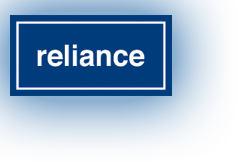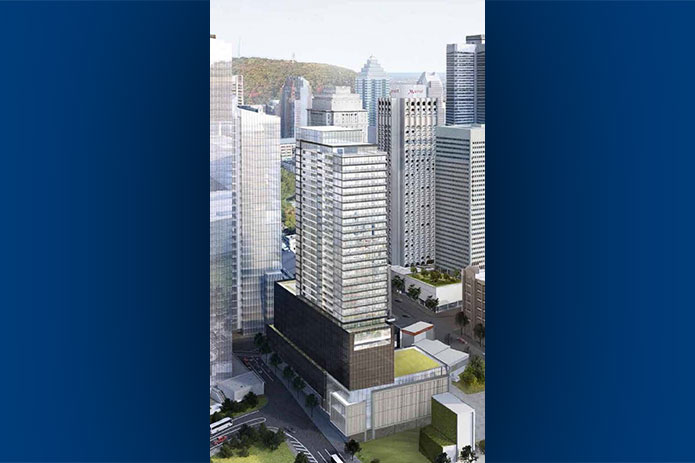About us | Accessibility
RELIANCE ACCESSIBILITY POLICY AND MULTI-YEAR PLAN
Statement of Commitment
Reliance Construction Toronto Inc. is committed to ensuring equal access and participation for people with disabilities. We are committed to treating people with disabilities in a way that allows them to maintain their dignity and independence. We believe in integration and we are committed to meeting the needs of people with disabilities in a timely manner. We will do so by removing and preventing barriers to accessibility and meeting our accessibility requirements under the Accessibility for Ontarians with Disabilities Act and Ontario’s accessibility laws.Reliance Construction Toronto Inc. is committed to meeting its current and ongoing obligations under the Ontario Human Rights Code respecting non-discrimination.
Reliance Construction Toronto Inc. understands that obligations under the Accessibility for Ontarians with Disabilities Act, 2005 (AODA) and its accessibility standards do not substitute or limit its obligations under the Ontario Human Rights Code or obligations to people with disabilities under any other law.
Reliance Construction Toronto Inc. is committed to excellence in serving and providing goods, services or facilities to all customers including people with disabilities.
Our accessible customer service policies are consistent with the principles of independence, dignity, integration and equality of opportunity for people with disabilities.
Training
We are committed to training all required employees in accessible customer service, following Ontario’s accessibility standards and the aspects of the Ontario Human Rights Code that relate to persons with disabilities.
In addition, we will train:
- all persons who participate in developing the organization’s policies; and
- all other persons who provide goods, services or facilities on behalf of the organization
Training of our employees on accessibility relates to their specific roles.
Training includes:
· purpose of the Accessibility for Ontarians with Disabilities Act, 2005 and the requirements of the Customer Service Standards;
· our policies related to the Customer Service Standards;
· how to interact and communicate with people with various types of disabilities;
· how to interact with people with disabilities who use an assistive device or require the assistance of a service animal or a support person;
· how to use the equipment or devices available on-site or otherwise that may help with providing goods, services or facilities to people with disabilities;
· what to do if a person with a disability is having difficulty in accessing our organization’s goods, services or facilities.
We train the required employees as soon as practicable after being hired and provide training in respect of any changes to the policies. We maintain records of the training provided including the dates on which the training was provided and the number of individuals to whom it was provided.
Assistive Devices
People with disabilities may use their personal assistive devices when accessing our goods, services or facilities subject to health and safety regulations.
In cases where the assistive device presents a significant and unavoidable health or safety concern or may not be permitted for other reasons, other measures will be used to ensure the person with a disability can access our goods, services or facilities when possible.
Communication
We communicate with people with disabilities in ways that take into account their disability and will work with the person with disabilities to determine what method of communication works for them.
Service Animals
We welcome people with disabilities and their service animals. Service animals are allowed on the parts of our premises that are open to the public and third parties where it would not cause a health and safety risk.
When we cannot easily identify that an animal is a service animal, our staff may ask for documentation (template, letter or form) from a regulated health professional that confirms the person needs the service animal for reasons relating to their disability.
A service animal can be easily identified through visual indicators, such as when it wears a harness or a vest, or when it helps the person perform certain tasks.
A regulated health professional is defined as a member of one of the following colleges:
- College of Audiologists and Speech-Language Pathologists of Ontario
- College of Chiropractors of Ontario
- College of Nurses of Ontario
- College of Occupational Therapists of Ontario
- College of Optometrists of Ontario
- College of Physicians and Surgeons of Ontario
- College of Physiotherapists of Ontario
- College of Psychologists of Ontario
- College of Registered Psychotherapists and Registered Mental Health Therapists of Ontario
If service animals are prohibited by another law, we will do the following to ensure people with disabilities can access our goods, services or facilities:
- explain why the animal is excluded
- discuss with the customer another way of providing goods, services or facilities
Support Persons
A person with a disability who is accompanied by a support person will be allowed to have that person accompany them on our premises.
In certain cases, this organization might require a person with a disability to be accompanied by a support person for the health or safety reasons of:
· the person with a disability
· others on the premises
Before making a decision, Reliance Construction Toronto Inc. will:
· consult with the person with a disability to understand their needs
· consider health or safety reasons based on available evidence
·determine if there is no other reasonable way to protect the health or safety of the person or others on the premises
Notice of Temporary Disruption
In the event of a planned or unexpected disruption to services or facilities for customers with disabilities, this organization will notify customers promptly. This clearly posted notice will include information about the reason for the disruption, its anticipated length of time, and a description of alternative facilities or services, if available.
A notice will be posted at the reception desk.
Feedback Process
Reliance Construction Toronto Inc. welcomes feedback on how we provide accessible customer service. Customer feedback will help us identify barriers and respond to concerns.
Feedback may be provided in the following ways: HR@relianceconstruction.com
All feedback, including complaints, will be handled in the following manner: The Director of Human Resources will triage the complaint and decide what appropriate action is required to be taken.
Customers can expect to hear back in 14 business days.
Reliance Construction Toronto Inc. ensures our feedback process is accessible to people with disabilities by providing or arranging for accessible formats and communication supports, on request.
Notice of Availability of Documents
Reliance Construction Toronto Inc. notifies the public that documents related to accessible customer service, are available upon request by posting a notice at the reception desk.
Reliance Construction Toronto Inc. will provide these documents in an accessible format or with communication support, on request. We will consult with the person making the request to determine the suitability of the format or communication support. We will provide the accessible format in a timely manner and, at no additional cost.
Information and Communications
We have a process for receiving and responding to feedback and the process is accessible to persons with disabilities upon request.
We communicate with people with disabilities in ways that take into account their disability. When asked, we will provide information about our organization and its services, including public safety information, in accessible formats or with communication supports:
· in a timely manner, taking into account the person’s accessibility needs due to disability; and
· at a cost that is no more than the regular cost charged to other persons.
We will consult with the person making the request in determining the suitability of an accessible format or communication support. If the organization determines that information or communications are unconvertible, the organization shall provide the requestor with:
a) an explanation as to why the information or communications are unconvertible; and
b) a summary of the unconvertible information or communications.
We notify the public about the availability of accessible formats and communication supports through our website www.relianceconstruction.com
Employment
We notify employees, job applicants and the public that accommodations can be made during recruitment and hiring. We notify job applicants when they are individually selected to participate in an assessment or selection process that accommodations are available upon request. We consult with the applicants and provide or arrange for suitable accommodation.
We notify successful applicants of policies for accommodating employees with disabilities when making offers of employment.
We notify staff that supports are available for those with disabilities as soon as practicable after they begin their employment. We provide updated information to employees whenever there is a change to existing policies on the provision of job accommodation that take into account an employee’s accessibility needs due to a disability.
We will consult with employees when arranging for the provision of suitable accommodation in a manner that takes into account the accessibility needs due to disability. We will consult with the person making the request in determining the suitability of an accessible format or communication supports specifically for:
· information that is needed in order to perform the employee’s job; and
· information that is generally available to employees in the workplaceWhere needed, we will also provide customized emergency information to help an employee with a disability during an emergency. With the employee’s consent, we will provide workplace emergency information to a designated person who is providing assistance to that employee during an emergency.
We will provide the information as soon as practicable after we become aware of the need for accommodation due to the employee’s disability.
We will review the individualized workplace emergency response information:
a) when the employee moves to a different location in the organization;
b) when the employee’s overall accommodations needs or plans are reviewed; and
c) when the employer reviews its general emergency response policies.
We have a written process to develop individual accommodation plans for employees.
We have a written process for employees who have been absent from work due to a disability and require disability-related accommodations in order to return to work.
Our performance management, career development and redeployment processes take into account the accessibility needs of all employees.
We put procedures in place to prevent service disruptions to the accessible parts of our public spaces.
Changes to Existing Policies
Any policies of this organization that do not respect and promote the principles of dignity, independence, integration and equal opportunity for people with disabilities will be modified or removed.
This document is publicly available. Accessible formats are available upon request.
MULTI-YEAR ACCESSIBILITY PLAN
Introduction
In order to prevent and remove barriers to accessibility, Reliance Construction Toronto Inc. created a multi-year accessibility plan which highlights both accomplishments and areas for continuous review and enhancement.
Statement of Commitment
Reliance Construction Toronto Inc. is committed to accessibility by identifying, removing and preventing barriers to promote the rights of all individuals and to build and create an inclusive and accessible working environment in accordance with the provisions of the Ontario Human Rights Code (the “Code”) and the Accessibility for Ontarians with Disabilities Act, 2005 (the “AODA”).Reliance Construction Toronto Inc. supports the intent of the AODA and its goal of achieving accessibility for Ontarians with disabilities with respect to Customer Service, Information and Communications, and Employment. Reliance Construction Toronto Inc. is committed to ensuring accessibility for all staff and clients with disabilities by identifying, removing and preventing barriers that might interfere with their ability to obtain services provided by Reliance Construction Toronto Inc. We strive to provide client services in a manner that respects the dignity and independence of individuals with disabilities, providing them with the same opportunities as anyone else. Reliance Construction Toronto Inc. strives to ensure that all of our staff and clients receive equitable treatment with respect to employment and services, without discrimination; and receive accommodation where required.
RELIANCE CONSTRUCTION TORONTO INC.'S Strategic Road Map
Reliance Construction Toronto Inc.’s multi-year accessibility plan documents our approach by outlining the actions that Reliance Construction Toronto Inc. has taken and will continue to take to improve opportunities for all. The multi-year plan and applicable policies apply to all individuals entitled to the protections set out in the AODA and its Regulations. The multi-year plan is a fluid document and will be reviewed at least once every five years as part of our commitment to accessibility.Accomplishments to date:
- Accessible Customer Service Policy
- Customer Service Standard training delivered to all Ontario staff
- Accessibility of Employment practices for external applicants
- Accessibility of Employment practices
- Workplace Emergency Response Information – reviewed and updated annually or when a change occurs
- Review of Multi Year Accessibility Plan – every five years
For more information
Contact Reliance Construction Toronto Inc. in person or in writing:200 University, suite 400, Toronto, Ontario, M5H 3C6
- by telephone: 514-631-7999 ext 270
- by email: raphaelle@relianceconstruction.com
This document is available in an alternative format upon request.
Last revised: October 2023
Annex 1 - DEFINITIONS
Under the Customer Service Standards (O.Reg. 429/07):"Assistive Device"
A device used to assist persons with disabilities in carrying out activities of daily life or accessing the services provided by Toronto Community Housing including, but not limited to, wheelchairs, walkers, canes, note- taking devices, portable magnifiers, recording machines, personal oxygen tanks and devices for grasping.
"Barrier" Anything that prevents a person with a disability from fully participating in all aspects of society because of his or her disability, including a physical barrier, an architectural barrier, an information or communications barrier, an attitudinal barrier, a technological barrier, a policy or a practice.
"Disability"
(a)any degree of physical disability, infirmity, malformation or disfigurement that is caused by bodily injury, birth defect or illness and, without limiting the generality of the foregoing, includes diabetes mellitus, epilepsy, a brain injury, any degree of paralysis, amputation, lack of physical co- ordination, blindness or visual impediment, deafness or hearing impediment, muteness or speech impediment, or physical reliance on a guide dog or other animal or on a wheelchair or other remedial appliance or device,
(b)a condition of mental impairment or a developmental disability,
(c)a learning disability, or a dysfunction in one or more of the processes involved in understanding or using symbols or spoken language,
(d)a mental disorder, or
(e)an injury or disability for which benefits were claimed or received under the insurance plan established under the Workplace Safety and Insurance Act, 1997;
"Service Animal" An animal trained specifically to assist an individual with a disability, either where it is readily apparent that the animal is a service animal or where a letter has been provided by a doctor or nurse confirming that the person requires the animal for reasons related to a disability.
"Support Person" Someone who accompanies a person with a disability and assists them with communication, mobility, personal care, medical needs or with access to goods or services.
To consult our 2023 compliance report, click here



